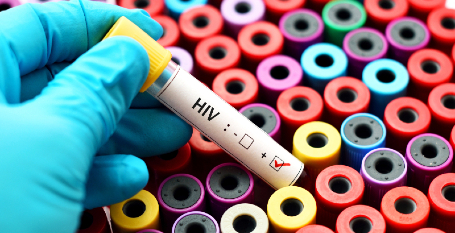It's been confirmed by researchers that the oldest patient yet has been cured of HIV after receiving a stem cell transplant for leukaemia.
While the transplant was planned to treat the now-66-year-old's leukaemia, the doctors also sought a donor who was naturally resistant to the virus that causes AIDS, a mechanism that first worked to cure the "Berlin patient", Timothy Ray Brown, in 2007.
The latest patient, the fourth to be cured in this way, is known as the "City of Hope" patient after the U.S. facility in Duarte, California, where he was treated - the person does not want to be publicly identified.
As well as being the oldest, the patient has also had HIV the longest, having been diagnosed in 1988. The patient has been on antiretroviral therapy (ART) to control their condition for more than 30 years.
After the transplant three and a half years ago, which followed chemotherapy, the City of Hope patient stopped taking ART in March 2021. He has now been in remission from both HIV and leukaemia for more than a year.
Scientists think the process works because the donor individual's stem cells have a specific, rare genetic mutation which means they lack the receptors used by HIV to infect cells.
Doctors who presented the data about the treatment said that the case opened up the potential for older patients with HIV and blood cancer to access the treatment, particularly as the stem cell donor was not a family member. However this kind of stem-cell transplant is unlikely to be an option for most people with HIV due to the risks of the procedure.
How close are we to a vaccine against HIV?
While the two-pronged strategy of PrEP and U=U (Undetectable equals Untransmittable) has given us the tools to minimise the acquisition of HIV, the prospect of a vaccine against the virus is undoubtedly a game-changer.
To date, it’s been difficult to develop a vaccine against HIV because the virus mutates so quickly. But it appears that the science used to tackle Covid-19 could also be effective against HIV.
Moderna is a bio-tech company that successfully developed a vaccine against Covid-19. Moderna (and also Pfizer) used mRNA technology for its vaccine. This enables scientists to create a vaccine that can target multiple variants of a virus.
Moderna has now applied that mRNA technology in the development of a vaccine against HIV. Moderna has recently announced that they’ve begun human trials of this vaccine against HIV.
It’s not clear what the timeline could potentially be if these human trials are successful – the vaccine would then need to go through regulatory approval before going into production. However, human trials is a fairly advanced stage of the development process, and regulators around the world have tested and approved the mRNA technology used by the HIV vaccine – all of which would speed up the process.
In the meantime, PrEP and U=U remains our best strategy for protecting each other and limiting the transmission of HIV.












 列印版本
列印版本



















讀者回應
請先登入再使用此功能。